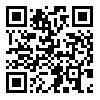BibTeX | RIS | EndNote | Medlars | ProCite | Reference Manager | RefWorks
Send citation to:
URL: http://frooyesh.ir/article-1-23-en.html
The study was done in order to determine the effectiveness of cognitive-behavioral approach based on Family therapy in reducing behavioral problems in adolescents who have fathers with substance abuse.The method of research of this study was implemented within experimental single subject design by using single base lines. The subject was a 13 year- old boy who was at 8th grade and was the only child in his family and the father of the family had substance abuse. So the family therapy based on cognitive-behavioral approach was held in 13 sessions (the sessions was held weekly).In order to assess behavioral problems, in addition to the clinical interview and reports of teachers and assistants of school, the test of self-report (YSR) based on Akhenbakh system (ASEBA) were used. For analyzing the data, base line diagram treatment and follow-up were used. The results of the study showed that this therapeutic approach can create meaningful and noticeable changes in internalization and externalization problems of subject and the diagram shows that internal and external problems are discounted after treatment process. Effectiveness of the intervention showed the efficacy of family-based treatment plans on the treatment of behavioral problems in adolescents who are at risk and family therapy approach which is based on cognitive- behavioral techniques is an effective treatment plan that can help families which have adolescents and suffer from substance abuse.
Received: 2015/08/9 | Accepted: 2015/08/9 | ePublished: 2015/08/9
| Rights and permissions | |
 |
This work is licensed under a Creative Commons Attribution-NonCommercial 4.0 International License. |




